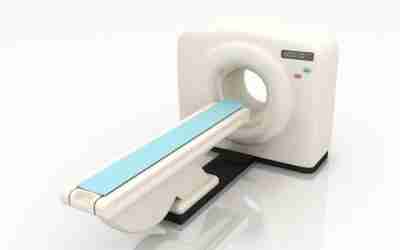 Photo courtesy of freedigitalphotos.net and renjith krishnan
Photo courtesy of freedigitalphotos.net and renjith krishnan
Today I’m making an attempt to catch up (ha ha! as if!) on the stack of articles and medical research that has been piling up in my office and came across something interesting that I thought you’d want to know about.
It appears that the Susan G Komen for the Cure Foundation recently requested the Institute of Medicine (IOM) to perform a comprehensive review of environmental causes and risk factors for breast cancer. Here’s a link to the full report.
I found it somewhat unbelievable that things such as phthalates, bisphenol A, industrial chemicals such as benzene, ethylene oxide, or pesticides like DDT could not be conclusively linked to an increased risk of breast cancer, but I will be avoiding them anyway, and I think you should too. The IOM did acknowledge that more research into these areas was required. Amen to that.
The Two Environmental Factors Most Strongly Associated With Increased Breast Cancer Risk
The IOM found sufficient evidence to conclude that the two environmental factors most strongly associated with breast cancer were:
- Exposure to ionizing radiation; and
- Postmenopausal hormone replacement therapy (which will be covered in a follow-up article).
The IOM’s conclusion that there was a direct connection between radiation exposure and cancer is consistent with a great many other bodies of research which indicate that exposure to radiation in the same range as used for computed tomography (CT-scans) will increase the risk of cancer.
75 Million CT Scans Performed Annually In The U.S.
The use of CT scans has increased nearly 5-fold over the last 2 decades – did you know that 75 million CT scans are performed every year in the United States alone? SEVENTY-FIVE MILLION! According to the IOM report, “Thought leaders in radiology are often quoted as estimating that 30% or more of advanced imaging tests may be unnecessary.” You think?
The reasons for overuse are many:
- the ease of conducting the exam;
- the clear diagnostic images made possible;
- strong financial incentives, reflected by the growing ownership of CT scanners by non-radiologists for use in their private medical offices;
- strong patient demand, resulting partly from advertisements that do not mention adverse effects;
- medical malpractice concerns which lead to defensive test ordering.
I have said this before and I’ll repeat it: BREAST CANCER RISK CAN (AND SHOULD) BE REDUCED BY AVOIDING UNNECESSARY MEDICAL IMAGING.
What You Can Do To Reduce Your Risk from Medical Imaging
There are times when CT scans, x-rays and other forms of medical imaging are absolutely crucial, necessary and can be life-saving. It is important, however, for us to enter into a dialogue with our doctors when making decisions about medical imaging. You have every right to insist on the necessity and safety of all radiology scans that you undergo. Make sure you understand the risks and benefits and ask your doctor to explain those risks and benefits fully before you say yes.
Here 6 Important Questions You Can Ask Your Doctor:
- Is this scan absolutely necessary?
- Are there alternative tests that could be done?
- How can I be assured that the test will be done the safest way possible?
- Will information from this scan change the management of my disease?
- Can/should I wait until after seeing a specialist before getting the scan?
- Is it necessary to do it now?
Isn’t it interesting that the very thing most doctors recommend for determining whether breast cancer has begun in a woman (mammography) is also responsible for increasing her risk? There is another option! See my article about thermal imaging.
My next article will cover natural alternatives to synthetic hormone replacement therapy.
If you would like my help with getting through breast cancer in an inspiring and ultra-healthy way, please sign up for my free e-newsletters on the right, or “like” me on Facebook (Marnie Clark, Breast Health Coach). It is my honor to help you through this.



Trackbacks/Pingbacks